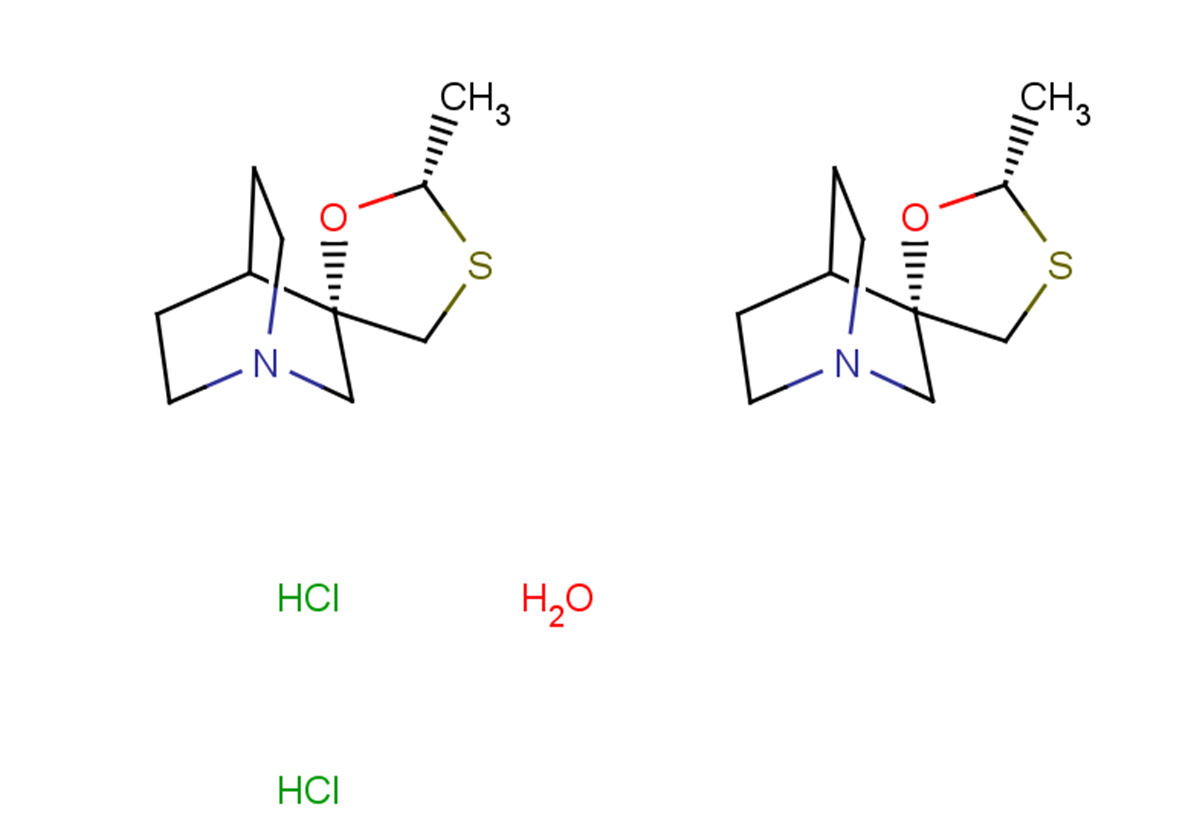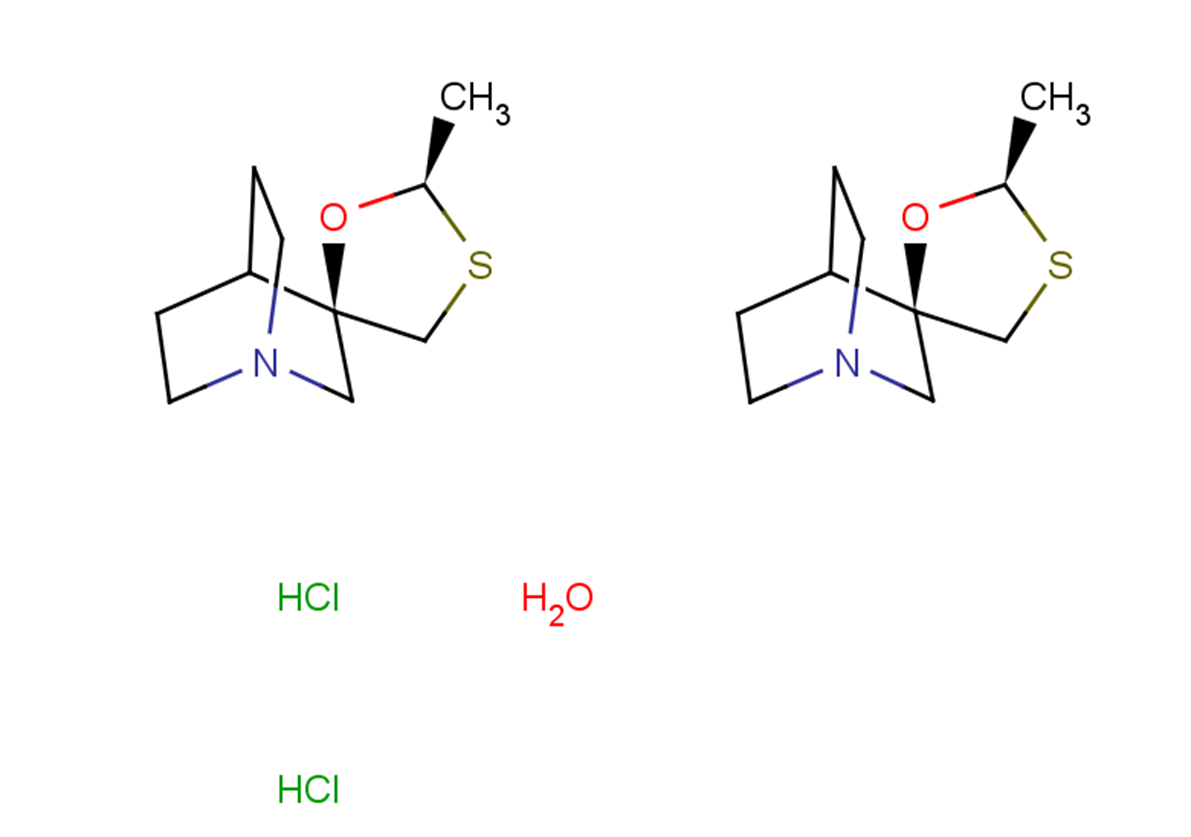(+)-Cevimeline hydrochloride hemihydrate
(+)-Cevimeline hydrochloride hemihydrate ((+)-SNI-2011) is a potent muscarinic receptor agonist that is a candidate therapeutic drug for xerostomia in Sjogren’s syndrome. IC50 value: Target: mAChR The general pharmacol. properties of this drug on the gastrointestinal, urinary, and reproductive systems and other tissues were investigated in mice, rats, guinea pigs, rabbits, and dogs. The in vitro metab. of SNI-2011 was also evaluated with rat and dog liver microsomes. After oral administration, plasma concns. of SNI-2011 reached to Cmax within 1 h in both species, suggesting that SNI-2011 was quickly absorbed, and then decreased with a t1/2 of 0.4-1.1 h. The bioavailability was 50% and 30% in rats and dogs, resp. Major metabolites in plasma were both S- and N-oxidized metabolites in rats and only N-oxidized metabolite in dogs, indicating that a large species difference was obsd. in the metab. of SNI-2011. Sex difference was also obsd. in the pharmacokinetics of SNI-2011 in rats, but not in dogs. In the in vitro study, chem. inhibition and pH-dependent studies revealed that the sulfoxidn. and N-oxidn. of SNI-2011 were mediated by cytochrome P 450 (CYP) and flavin-contg. monooxygenase (FMO), resp., in both species. In addn., CYP2D and CYP3A were mainly responsible for the sulfoxidn. in rat liver microsomes.

| Catalog Number | T13460 |
| Alternative Name(s) | (+)-AF102B hydrochloride hemihydrate , (+)-SNI-2011 |
| Research Area | Others |
| Molecular Formula | C10H19ClNO1.5S |
| CAS# | T13460 |
| SMILES | C[C@H](SC1)O[C@]21CN3CCC2CC3.Cl.[0.5H2O] |
| Size | 5 mg |
| Supplier Page | https://www.targetmol.com/compound/(+)-Cevimeline hydrochloride hemihydrate |
| Additional Information | https://www.targetmol.com/datasheet/T13460 |


